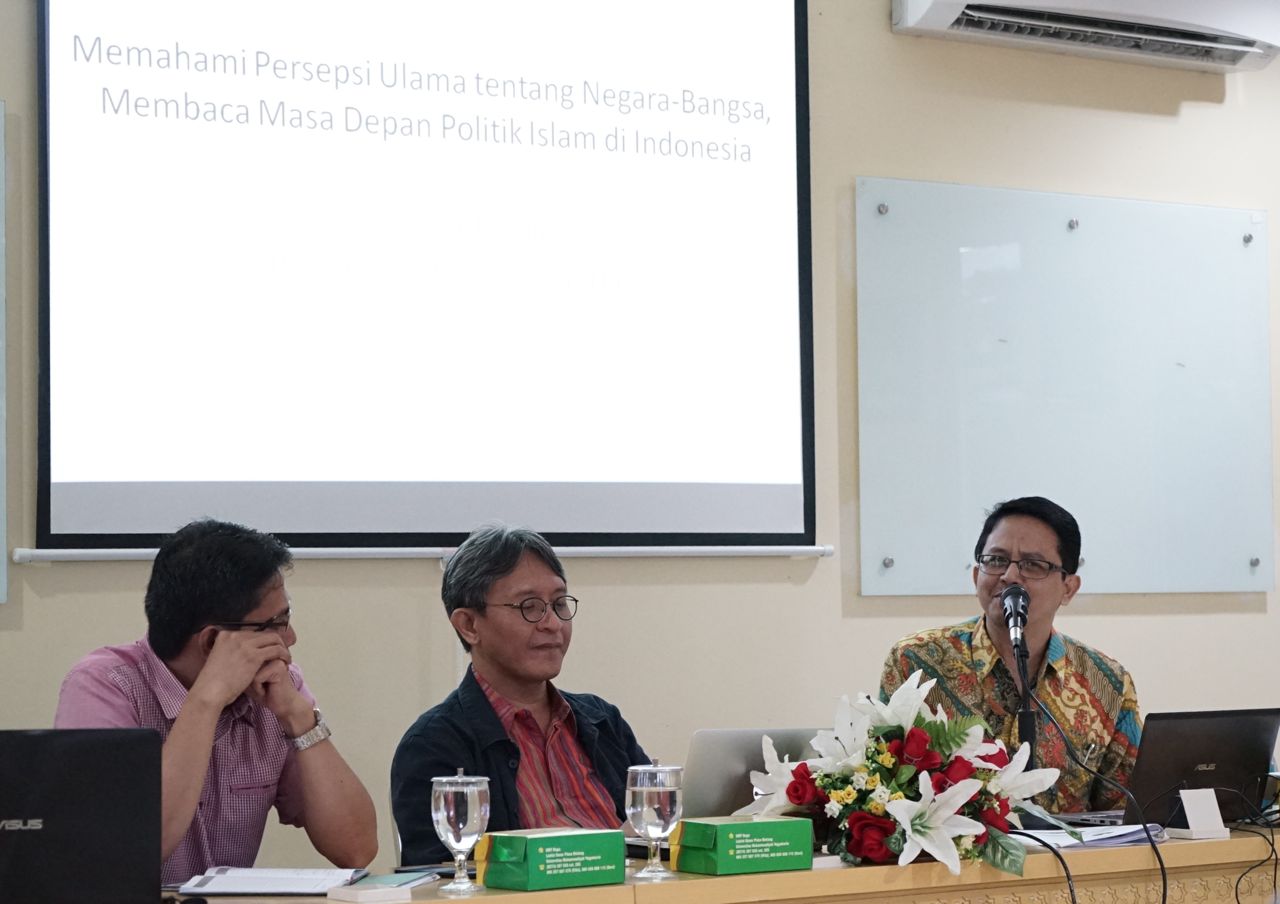A monthly seminar conducted by Doctoral Program of Islamic Politics of Universitas Muhammadiyah Yogyakarta (UMY) discussed the future of Indonesia. Comprehending Indonesian ulema assists understanding Islamic politics. At the seminar held at Meeting Room of Director of Graduate School of UMY on Tuesday (12/2), the understanding is necessary since Muslims are a majority.
Director of the Postgraduate of UIN Sunan Kalijaga Yogyakarta Prof. Noorhaidi Hasan, M.A., M.Phil., Ph.D. stated, “Based on a survey on Islamic Politics, 67 present of Yogyakarta students agreed on an Islamic state. “The data drive people to assume that what occurs in Indonesia now may lead this country to be an Islamic state. The circumstance may direct public opinions that Indonesia is in an emergency.
Dynamics of Islamic politics are determined by two essential aspects, composition diversity of religious public space composition diversity and ulema complexities to recognize their position today. “Islamic politics is inextricable from online media development which bears new religious entrepreneurs. The phenomenon raises competitiveness in gaining religious public spaces,” explained Noorhaidi.
According to research, 71.56 percent of Indonesian ulema welcomed a conservative, moderate, inclusive, and progressive nation, while 16.44 percent of them refused an exclusive, radical, and extreme nation. “A majority of Indonesian ulema declined violence. Another factor is that government and the people successfully promote a movement against radicalism and terrorism,” informed Noorhaidi.
Meanwhile, a sociologist of the University of Gadjah Mada Dr. Muhammad Najib Azca, S.Sos., M.A. conveyed, “A history of Islamic politics began at the beginning of Indonesia’s independence day and revived in the 1980s. In fact, radical Islam expanded its network in post-communal religious violence in the East of Indonesia after 1998. Then, it bore three Islamic activist styles, namely jihad, dakwah, and political movements. Thus, radical Islam has existed in development of democracy in Indonesia.”
Najib added that an Indonesian Muslim majority are pluralists and moderate when confronting issues of radical Islam. They include two greatest Indonesian movements, Nahdlatul Ulama (NU) and Muhammadiyah. “Recent data showed that NU dan Muhmmadiyah are often considered giving more support to pluralist parties than Islamic parties. NU and Muhammadiyah members voting pluralist parties and Islamic parties in 2009 were 86.25% and 13.75%, respectively, while in 2014 it was 84.6 percent of the members supported pluralist parties and 15.4 percent of them voted Islamic parties,” he mentioned.







